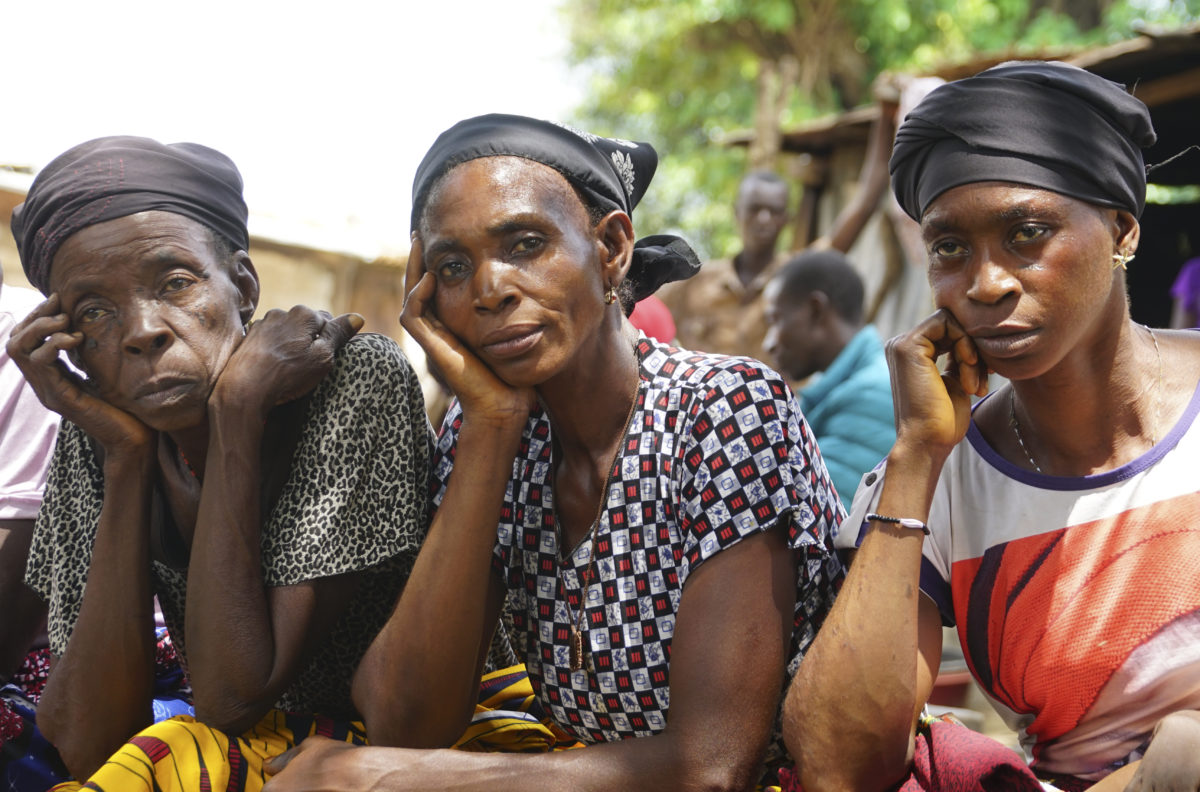Opinion
Six ways donors can speed up the Participation Revolution
Nick van Praag • 29 October 2019

Because donors have a lot of clout in the humanitarian space, they can tip the balance in promoting change. One area where they can push the reform agenda further is ensuring that people hit by disaster have a say in the way aid programmes are designed and run.
Donors insisted on greater participation as a quid pro quo for more funding on better terms as part of the Grand Bargain brokered between aid agencies and donor governments at the World Humanitarian Summit in 2016. Progress on that can be traced to requirements on participation that many donors now include in grant agreements and to enhanced funding for these activities. But more remains to be done. Here are six ways for donors to speed things up:
Demand that reports on participatory processes focus on outcomes, not activities or outputs. Donors should ask aid agencies to report less on how they include affected people in the design and evaluation of programmes and more on how they’ve reacted to what they learn from them. For example, reporting on setting up a hotline is one thing; more important for donors is to know the proportion of affected people who are aware of the existence of the hotline and whether they would expect a response if they used it. ‘We’d respond to feedback if the donors made us report on it,’ is a refrain we often hear from aid agencies.
Link programme performance to the client experience. One way is to include performance indicators based on people’s perceptions linked to whether or not an organisation is reaching its programme goals. For example, if an agency says its activities will make affected people more resilient, donors should ask for data that tracks the percentage of people who feel better able to stand on their own feet. Donors could also strengthen their own third-party monitoring efforts by including indicators based on people’s perceptions of aid programmes and mainstreaming the indicators across donors.
Distinguish between proactively seeking feedback and passively receiving input from those who provide it of their own volition. The two approaches - one active, the other passive - do not provide an equally representative overview of affected people’s views. A robust, weighted sample of the overall population is more representative than the views of individuals moved for their own reasons to use a hotline or suggestion box. The latter may not include marginalised and vulnerable groups who lack the self-confidence or the cell phones to take advantage of standard complaints mechanisms. Donors need to understand the difference between data that is proactively sought and that which is passively collated, especially through complaints systems. Complaints are inherently negative but feedback isn’t. The distinction has implications for the inferences that can be drawn.
Add the response-wide dimension. Measuring the level and quality of participation is valuable in managing performance at the response-wide level. It helps determine whether the collective effort - as distinct from the work of individual agencies or clusters - is making a difference. In Chad, the Central African Republic, Bangladesh, Iraq, Uganda, and Somalia, Ground Truth Solutions is working with the humanitarian country teams to track whether they are achieving the objectives set out in their respective Humanitarian Response Plans. The innovation is that they are using indicators and targets that show how affected people themselves view progress, or lack thereof, against the shared objectives of the whole humanitarian country team. Here’s an example from Somalia. Donors should insist on receiving this measure of performance, which is expected as part of new Humanitarian Programme Cycle guidelines.
Promoting common accountability platforms. Accountability one agency at a time is critical but it’s a long and winding road; one that can be shortened and straightened out with greater response-wide collaboration. Several humanitarian country teams now are pursuing this approach to ensure that course correction happens across the whole response and not just at project level. Donors should encourage agencies, especially coordinating bodies like OCHA and UNHCR, to support collective approaches, through carrots (funding specialised services as components of a whole) and sticks (making coordinated accountability a compliance issue, particularly for United Nations agencies with multiples partners).
Make sure funds are available to track collective action on participation. Finding out what affected people think and bringing their views into the programme cycle is not expensive, but neither is it cost free. Donors must either come together, as they are doing in Somalia, to fund these efforts as a group, or make sure that pooled funds are available for this purpose, as is now in the case in the Central African Republic and Iraq.
Donors have played a central role in pushing the humanitarian community to do more on participation. Now would be a good time for them to give this revolution-in-waiting an additional shove in the right direction.